Search
Remove Ads
Advertisement
Summary 
Loading AI-generated summary based on World History Encyclopedia articles ...
Search Results
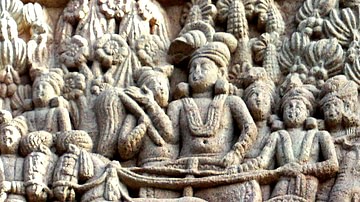
Article
Social, Political & Economic Landscapes in Kautilya's Arthashastra
The Arthashastra (or Arthaśāstra) is one of the oldest surviving treatises on statecraft. There is considerable debate about the dating and authorship of the text; it underwent compilation, recension, and redaction several times over the...
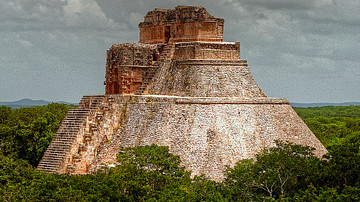
Lesson
Climate Change & Disaster - Linking Antiquity and Present
This activity can be done in class as a discussion, given as homework or assignment for an essay or a presentation. It includes keys and all the material needed. You can just print and roll with it in your class without preparation! In...
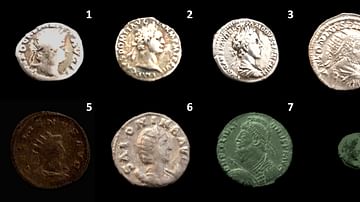
Article
Follow the Money. The Coinage of Later Imperial Rome: A Reflection of Economic Stress and Decline
Unlike the practice of professional numismatists, I prefer to see the “big picture”. So, my entire Roman coin collection, all 250 pieces, from Julius Caesar to Valentinian III is laid out on a single pane of glass in a cabinet, in chronological...
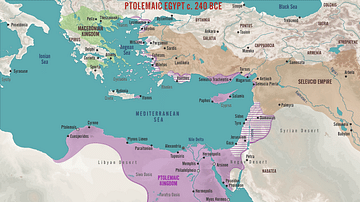
Definition
Ptolemaic Egypt
Ptolemaic Egypt existed between 323 and 30 BCE when Egypt was ruled by the Macedonian Ptolemaic dynasty. During the Ptolemaic period, Egyptian society changed as Greek immigrants introduced a new language, religious pantheon, and way of life...
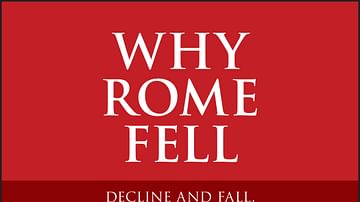
Article
Continuity and Change after the Fall of the Roman Empire
The cataclysmic end of the Roman Empire in the West has tended to mask the underlying features of continuity. The map of Europe in the year 500 would have been unrecognizable to anyone living a hundred years earlier. Gone was the solid boundary...
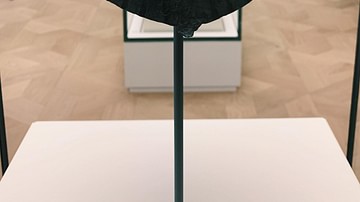
Article
Vikings: Jewelry, Weapons & Social Change at The VIKINGR Exhibition
In April 2019, The Museum of Cultural History in Oslo, Norway, opened its doors to the new exhibition VÍKINGR, containing rich treasures and unique archaeological finds from the Viking Age (c. 750-1050). The Viking Age is considered Norway's...
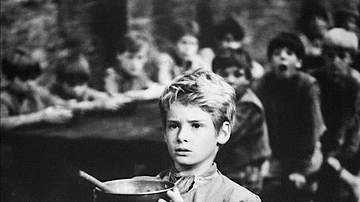
Article
Social Change in the British Industrial Revolution
The British Industrial Revolution (1760-1840) witnessed a great number of technical innovations, such as steam-powered machines, which resulted in new working practices, which in turn brought many social changes. More women and children worked...

Definition
Ptolemaic Dynasty
The Ptolemaic dynasty was a Macedonian royal family that ruled Ptolemaic Egypt from 323 to 30 BCE. It was founded by Ptolemy I, a general and successor of Alexander the Great. They built Alexandria, including the Lighthouse of Alexandria...
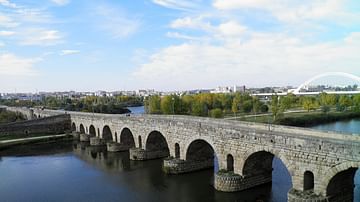
Article
Legacy of the Ancient Romans
The legacy of the ancient Romans – from both the time of the Roman Republic (509-27 BCE) and the time of the Roman Empire (27 BCE - 476 CE) – exerted a significant influence on succeeding cultures and is still felt around the world in the...
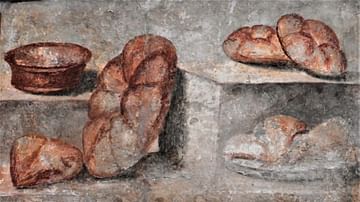
Interview
Dinner with the Romans: An Interview with Farrell Monaco
The ancient Romans left behind a wealth of remains which help archaeologists and historians to understand what daily life was like in the Roman Empire. From ancient frescos of rich table spreads, to broken wine vessels, carbonized loaves...